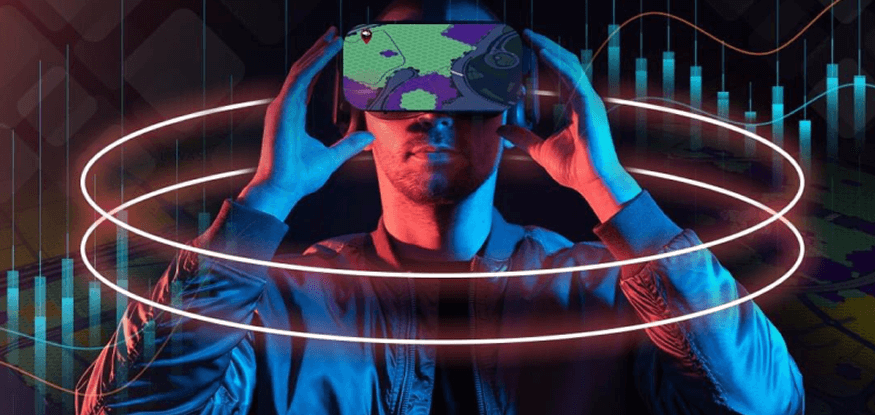In a bid to turn Dubai into a role model in metaverse technologies with an applicably robust digital infrastructure, the Dubai government launched its Dubai Metaverse Strategy which aims to present Dubai as one of the world’s top 10 metaverse economies as well as a global hub for the metaverse community.
His Highness Sheikh Hamdan bin Mohammed bin Rashid Al Maktoum, Crown Prince of Dubai and Chairman of Dubai Executive Council, highlighted the importance of consolidating Dubai’s status as a focal point offering the most advanced ecosystem for the metaverse and as a frontrunner in adopting digital solutions globally. This pronouncement is in line with the ambitious vision of His Highness Sheikh Mohammed bin Rashid Al Maktoum, Vice President, Prime Minister and Ruler of Dubai for transforming the emirate into a global capital of advanced technologies, primarily artificial intelligence (AI) and Web3.
The strategy aims to build on Dubai’s achievement of attracting more than 1,000 companies in the fields of blockchain and the metaverse. It also promotes Dubai’s ambitions to support more than 40,000 virtual jobs by 2030.
Dubai is making great strides in enhancing its position as a global testing ground for metaverse technologies, while investing judiciously in building the capabilities and the talent for creating the region’s largest and most robust ecosystem for the metaverse community.
Commenting on the launch of the Dubai Metaverse Strategy, Omar bin Sultan Al Olama, Minister of State for Artificial Intelligence, Digital Economy and Teleworking Applications, and Deputy Managing Director of the Dubai Future Foundation, reiterated the importance of designing the future with new digital strategies for adopting the metaverse in vital sectors.
The Dubai Metaverse Strategy supports the development of Web3 technology and its applications to create new governmental work models and development in vital sectors, including tourism, education, retail, remote work, healthcare and the legal sector.
The strategy’s key pillars focus on extended reality (which blends the physical and virtual worlds), augmented reality (AR), virtual reality (VR), mixed reality and digital twins (a virtual representation of an object or system). VR and AR are two key drivers of the metaverse, responsible for 6,700 jobs and contributing $500 million to the UAE’s economy. The strategy aims at leveraging real-time data, using machine learning and IoT, and employing AI simulation and blockchain.
The metaverse opens up varied economic opportunities. Globally, the value of venture capital and private equity financing in the metaverse reached $13 billion in 2021, while real estate sales in the metaverse surpassed $500 million last year.
Second Life – a virtual world in which participants can explore fantasy landscapes and even build their own – contributed more than $650 million to global GDP in 2021. The metaverse also achieved 200 strategic partnerships with Sandbox, a decentralized virtual gaming world, which includes the launch of the Warner Music Group, itself a music-themed virtual world in the metaverse.
Analysts estimate that the metaverse will contribute up to $5 trillion to the global economy by 2030. The market value of NFTs is expected to reach $80 billion, while consumer spending on in-game purchases is expected to reach $75 billion by 2025. Recent studies show that the active users on Roblox, one of the leading global metaverse communities, has increased to 55 million daily. Additionally, 59% of global consumers are keen to transition some of their day-to-day activities into the metaverse.
In line with Dubai Metaverse Strategy, the Museum of the Future will host Dubai Metaverse Assembly in September 2022. The global event hopes to gather over 300 experts and 40 specialized organizations to discuss the unlimited opportunities offered by the metaverse to serve humanity.

